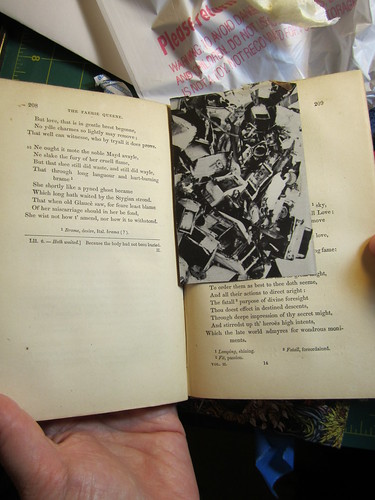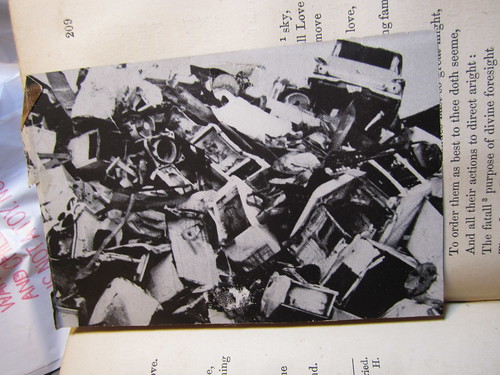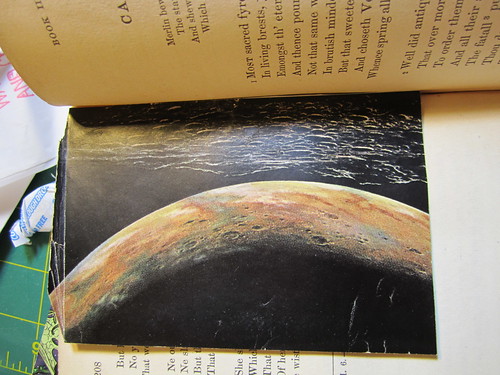On DRM and Books and Other Things (A Not-Strictly-Zombie-Related Discussion)
A discussion came up on Twitter about the issue of DRM and books after I stated my distaste for the practice. When the art director got home from work we talked about it too, and both concluded that one of the chief evils of DRM on books is that books are meant to be readable, if not in perpetuity, then as closely as we can get to perpetuity short of chiseling stone tablets.
DRM-locked ebooks and audiobooks, on the other hand, are readable only so long as the knowledge of how to unlock them is available, and so long as such unlocking is legal and practical to perform. In the Present of a DRM locked works’ lifetime, the DRM’s effectiveness at keeping unwanted people out is usually measured in hours, days, or perhaps weeks; someone on the internet will crack it eventually, it’s almost inevitable.
But in the future, that workaround, and indeed, the original, legal, copyright-gods approved method of reading/listening to the book may be lost to the grey mists of time. It becomes less a book, and more a waste of bytes.
Even back here in the present, where interested parties can usually find a method, although sometimes rather time-intensive, to crack the DRM on anything, it’s still often a pain in the butt. I once just had to buy Megas XLR from the iTunes store, and of course, it had video DRM. And that meant it was basically impossible to play on our tv setup at the time.
So I used Tunebite to get around that via the magic of the analog hole; Tunebite doesn’t break ‘copyright protection’ per se, it just waits for the authorized program to break it, and then Tunebite remembers everything that it sees and hears like a dutiful spy. Handy, and at least plausibly legal even in our litigious age.
This was literally the only way to legally purchase the show and reward the hard-working people who made it, and the only way we could watch what I had purchased, together. I had to do it in a batch job overnight because purchasing the show, and indeed the fact that it *could* now be purchased in a high res, high quality version, authorized version, was a surprise gift for the art director.
Twenty years from now, the unlocked files I created will still be playable, most likely. The iTunes DRM-constrained ones? Who knows.
But with books it goes a lot further than that. Books are designed to be experienced by humans directly, not interpreted by computer code. Ebooks get a little more complicated than that, but they’re designed to parallel that experience. Audiobooks too. So that’s the standard for accessibility we should judge them by, and in the case of DRM e/audiobooks, they fall drastically short. Not only do you have to have the ability to display them, you have to have the ability to convince the book that you’re *allowed* to read it. But companies and authentication methods (and communities of hackers to get around them) are relatively short-lived things compared to the life of a paper book.
If you lose the ability to unlock your ebook or audiobook, having the file and a computer won’t mean much to a future person wanting to read/hear it.
Which brings us to the art director’s concrete example. During the course of our conversation the topic of old books we own came up, and she told me that she owns a few really, really old ones. Far older than we are, or our parents are, or our grandparents are. Fragile, perhaps, but still readable to anyone who opens them.
How old, I wanted to know?
Well, this old:
Yes, this book apparently dates from the Civil War. No joke. And it still *works*, because the goal was to make something that could be read for years to come, not to prevent the ‘wrong’ people from reading it in the first place.
We only have Volume 2, but Google has Volume 1 digitized and online. Apparently there were five volumes in total. (If someone at Google wants to scan ours and add it to the set we’d be happy to oblige).
You can tell that it’s passed through quite a few hands to get to us as well. Little things, almost like archaeology, talk about past owners and readers.
Apparently it spent some time in St. Helena, California, for example.
Someone who owned it used cut out pictures from magazines as bookmarks:
Even what’s left of the bookmark is still useable to convey information after who knows how many years. On one side, you have a junkyard:
And on the other side, a picture of another planet or moon, Mars or Ganymede I think, someone feel free to correct me:
The publisher is still around too, after a fashion; they’ve been sold again and again through the decades.
If you bought an ebook today, do you think Amazon would still be around to unlock it for one of your descendants in 140 years?
So no, I don’t want DRM on books. If I have another option, I’ll take it, which means even though I like ebooks as a format I prefer to buy paper copies, or DRM free ones from Fictionwise. The same goes for everything else; I never bought a single album via download until the DRM free options became available, sticking to shiny plastic. Now I buy tons of mp3s, and have gotten lazy about ripping CDs when I can have Amazon make them for me.
Yes, you can always get around the DRM on ebooks, in the here and now. It took about thirty seconds of googling to figure out how to get around the DRM on Kindle files or Audible ebooks. I can preserve the use of this book for a distant future me, or future generations, protect the ebook from itself. But why should that be *my* responsibility in the first place?
The point of a book is to be read, after all.
PS: I have no idea what this stuff written inside the spine means but it’s fascinating:
PPS: None of this is meant as a condemnation of authors who sell ebooks on audible/amazon. It’s not like it’s up to them about the DRM the e-tailers and publishers push on people.








I recently came across an article via Slashdot on the history/timeline of DRM, and basically everyone who has used DRM has stopped using it or has failed.
http://opensource.com/life/11/11/drm-graveyard-brief-history-digital-rights-management-music
I think people fundamentally resent, and resist, this move away from owning anything to merely leasing it. A lease is fine, but trying to force people out of traditional ownership models they enjoy into leasing without any benefit to the consumer isn’t fair, and hopefully won’t work.